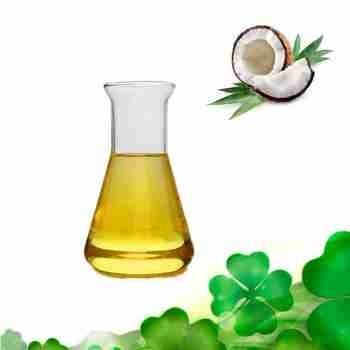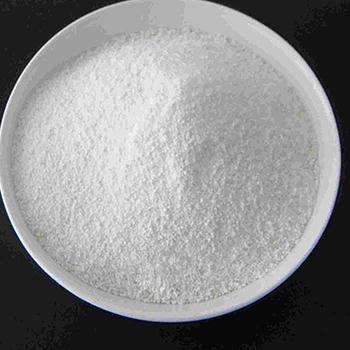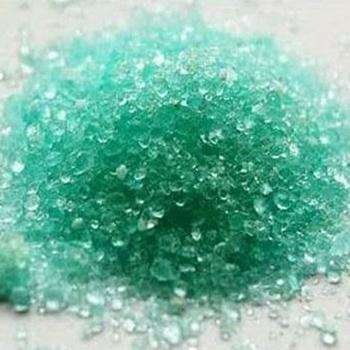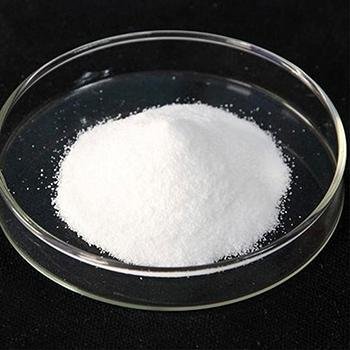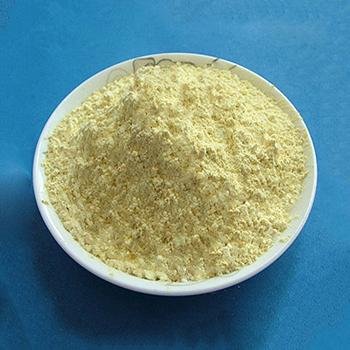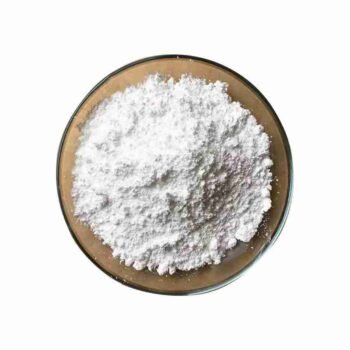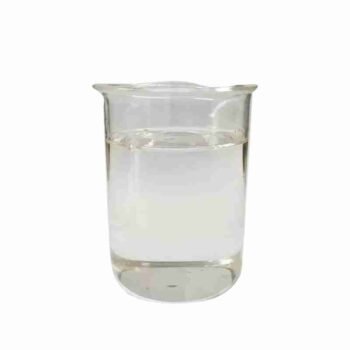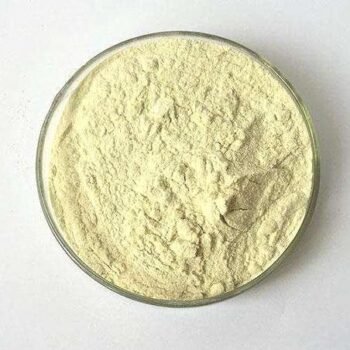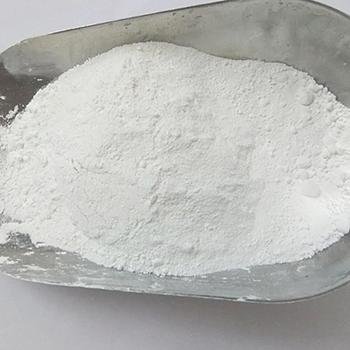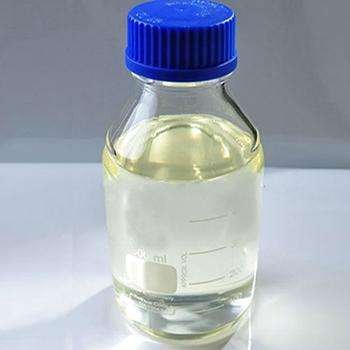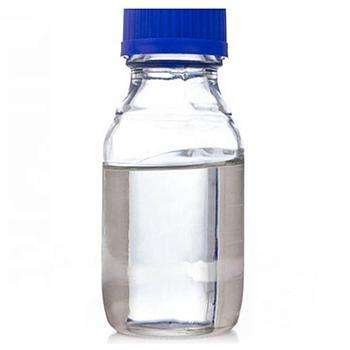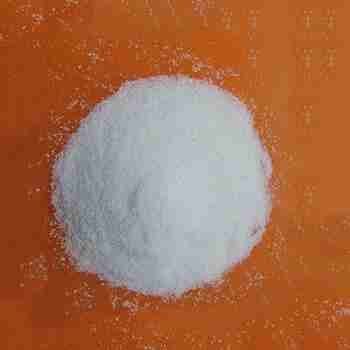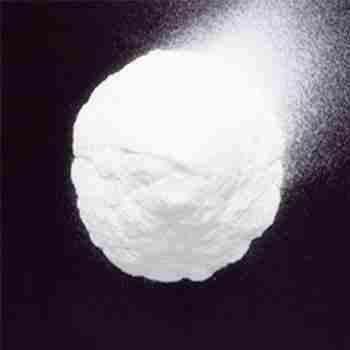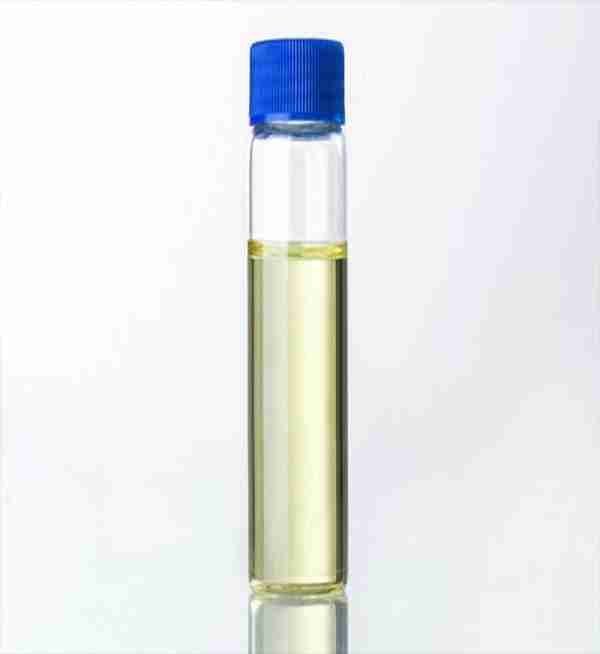Dodecyl Dimethyl Benzyl Ammonium Chloride CAS #122-19-0
Stearic dimethyl benzyl ammonium chloride is a white solid or viscous liquid with slight odor.
Synthesis of benzyl dimethyl stearyl ammonium chloride: put 450kg dimethyl octadecylamine into a reactor, heat it to 80~85 ??, and slowly add 180kg benzyl chloride within 1.5~2h under stirring. The temperature shall be kept at 80~90 ?? during the dropping process. After dosing, temperature rise to 100~105 ??, keep the reaction for several hours, and take samples to determine the pH value. When the pH value of 1% aqueous solution reaches 6~6.5, the reaction is completed. Lower the temperature to 60 ?? and discharge to obtain benzyl dimethyl stearyl ammonium chloride.
发送询盘
Dodecyl Dimethyl Benzyl Ammonium Chloride CAS #122-19-0
| Benzyldimethylstearylammonium Chloride Basic information |
| Product Name: | Benzyldimethylstearylammonium Chloride |
| Synonyms: | stedbac;tallowbenzyldimethylammoniumchloride;tritoncg400;tritoncg500;tritonx-40;tritonx-400;varisoftsdc;dimethyl octadecyl benzylamonium chloride |
| CAS: | 122-19-0 |
| MF: | C27H50ClN |
| MW: | 424.15 |
| EINECS: | 204-527-9 |
| Product Categories: | Aromatics;Intermediates & Fine Chemicals;Isotope Labelled Compounds;Pharmaceuticals;API Intermediate;Ammonium Chlorides (Quaternary);Aromatic Quaternary Ammonium Salts (Surfactants);Cationic Surfactants;Functional Materials;Quaternary Ammonium Compounds;Surfactants;Hair Care;Home Care |
| Mol File: | 122-19-0.mol |
 |
|
| Benzyldimethylstearylammonium Chloride Chemical Properties |
| Melting point | 54-56??C |
| density | 0.98 |
| vapor pressure | 0Pa at 25?? |
| storage temp. | Inert atmosphere,Room Temperature |
| solubility | Chloroform (Slightly), DMSO (Slightly), Methanol (Slightly) |
| form | Solid |
| color | White to Off-White |
| Odor | at 100.00?%. bland |
| Water Solubility | 4000 G/L (20 oC) |
| LogP | 3.89 at 20?? |
| CAS DataBase Reference | 122-19-0(CAS DataBase Reference) |
| EPA Substance Registry System | Dimethyl octadecyl benzyl ammonium chloride (122-19-0) |
| Safety Information |
| Hazard Codes | C,N |
| Risk Statements | 22-38-41-50-34-21/22 |
| Safety Statements | 26-36/37/39-61-45 |
| RTECS | BO7000000 |
| HS Code | 29239000 |
| Hazardous Substances Data | 122-19-0(Hazardous Substances Data) |
| Toxicity | LD50 oral in rat: 1250mg/kg |
- 2
- 2-diallylpent-4-en-1-amine
- 4
- 95-16-9
- Ammonium sulfamate
- Benzothiazole
- cas:67889-00-3ح2
- cas:83524-75-8 | pigment black 32
- cas:928836-00-4 | 2
- cas:932745-70-5 | 4
- Chemical Minerals
- Coconut diethanolamide
- Daily Chemicals
- discount
- for sale
- General pvc resin
- hexyl D-glucoside
- in stock
- Lauramidopropyl betaine
- LAURIC ACID MONOETHANOLAMIDE
- Petroleum Additives
- Plasticiser
- Ploymers
- price
- PVC
- quotation
- Raw Materal
- Remove term: Petroleum Additives Petroleum Additive
- SODIUM ETHYL 2-SULFOLAURATE
Related Products
Chemical Name: Dehydrocholic acid
Synonyms: Acide dehydrocholique; Triketocholanic acid
CAS No.: 81-23-2
Molecular Formula: C24H34O5
Molecular Weight: 402.53
Appearance: Powder
Chemical Name: Ammonium Iron(II) Sulfate
Synonyms: Diammonium iron bis(sulphate); iron (ii) ammonium sulfate
CAS No.: 10045-89-3
Molecular Formula: FeH5NO4S
Molecular Weight: 170.95
Chemical Name: UV-120
Other Name: (2’,4’-Di-tert-butylphenyl 3,5-di-tert-butyl-4-hydroxybenzoate)
CAS No.: 4221-80-1
Molecular Fomula: C29H42O3
Molecular weight: 438.66
Assay: ≥99%(LC)
Product name:HYDROXYPROPYL GUAR HYDROXYPROPYLTRIMONIUM CHLORIDE
Purity:99%
Appearance:Light Yellow Powder
Package:Customized according to customer needs.
Sample:Available
Coconut Oil Monoethanolamide is a high-performance emulsifier derived from natural coconut oil. It is a key component in personal care and cosmetic formulations, providing excellent emulsifying properties and improving product texture. With its natural origin and superior performance, it is the preferred choice for creating stable and high-quality products.
Decyl Glucoside is an eco-friendly, non-ionic surfactant derived from renewable resources. Renowned for its mildness and biodegradability, it is ideal for creating gentle, high-performing cleaning agents in personal care and household products. Its sustainable and effective nature makes it a preferred choice for green formulations.
Lauramidopropyl betaine is a mild, biodegradable surfactant commonly used in personal care products and cleaning formulations. It is derived from coconut oil and is known for its foaming and wetting properties, making it ideal for creating rich lathers. This ingredient is particularly favored for its gentleness on the skin and its ability to cleanse without causing irritation, making it suitable for sensitive skin types. It also contributes to the product’s viscosity and stability.
Hexyl D-glucoside is a non-ionic, plant-based surfactant derived from renewable resources such as corn or potato starch. It is recognized for its excellent skin compatibility and mildness, making it a preferred choice for formulations in personal care products, especially those targeting sensitive skin. With its superior solubilizing and foaming capabilities, it enhances the sensory experience of the product without compromising its gentleness. Its eco-friendly profile and biodegradability also align with green chemistry principles, appealing to consumers seeking sustainable product options.
Chemical Name: o-Xylene
Synonyms: 1,2-Dimethylbenzene; ortho-xylene
CAS No.: 95-47-6
Molecular Formula: C8H10
Molecular Weight: 106.17
Product name:Cyclopentane
Purity:96%
Appearance:White powder
Package:25kg/bag
Sample:Available
Chemical Name: 1,1,2,2-Tetrachloroethane
Other Name: Tetrachlorethane
CAS No.: 79-34-5
Molecular Formula: C2H2Cl4
Molecular Weight: 167.85
Appearance: Liquid
Chemical Name: STODDARD SOLVENT
CAS No.: 64742-88-7
Appearance: Colorless or Light Yellow Liquid



